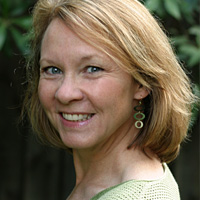"I believe this nation should commit itself to achieving the goal, before this decade is out, of landing a man on the moon and returning him safely to Earth." -John F. Kennedy
President John F. Kennedy announced this goal to Congress 50 years ago, 20 days after Alan Shepard spent his 15 minutes in space, and six weeks after Soviet Yuri Gagarin orbited Earth. Kennedy had little idea how we might accomplish the goal. Much of the necessary technology had yet to be developed. The possibility of Communist-ruled heavens was the spark for our race to the moon.
President Kennedy might have fallen to the same fear mongering that seems the go-to political strategy today, but he took the threat and turned it on its head, made it a "great new enterprise." I'm not old enough to remember the speech, but I was a child of the space age, born the year Russia's Luna 2 became the first object to travel from Earth to the moon. By the time Neil Armstrong made his "one small step" onto the Sea of Tranquility, I was as wild for the astronauts as most girls are for teen idols -- although I was a big fan of Davy Jones of the Monkees, too. My childhood was defined by a deep pride in my country, one undiminished by wars and protests and race riots I was sheltered from.
America's path to the moon wasn't all idyllic perfection. A cabin fire in Apollo 1 killed its three astronauts on the launch pad. We wouldn't put a woman in space until 20 years after the Russians did, and our first black astronaut was still in diapers when we landed on the moon. Still, the optimism that we could achieve the impossible shaped me.
I wonder how much having an almost unachievable goal of making something magical happen might do for our country and our children now. Franklin Roosevelt said, "To reach a port, we must sail-Sail, not tie at anchor-Sail, not drift." Surely there is some wind we can catch in our collective sails today.
